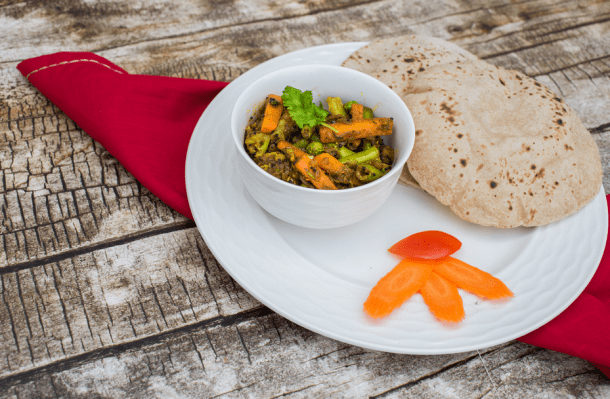Most food delivery services try to offer a cornucopia of selections from as many restaurants as possible. A Bengaluru startup called Dazo, however, is taking the opposite approach. Dazo (formerly known as TapCibo) only works with a few partners, who each make just two dishes available on the platform for lunch, afternoon snacks, and dinner.
For diners who are used to scrolling through tons of menu options when they order from platforms like FoodPanda, Just Eat, or Zomato (the review site recently launched a food delivery app), having fewer options might seem like a counterintuitive business strategy.
The founders of Dazo, however, say that this tactic allows them to not only offer better food and faster delivery, but is also a boon for hungry and busy customers who want to get a satisfying meal as quickly as possible, instead of filtering through dozens of restaurants and reviews.
The startup has received votes of confidence from investors including the co-founders of CommonFloor and TaxiForSure, as well as Amazon India country manager Amit Agarwal and Alok Goel, the CEO of FreeCharge.
Dazo was founded in October 2014 by Shashaank Shekhar Singhal and Monica Rastogi. After returning to India from the U.S., the two discovered that ordering food was a major inconvenience for office workers. In Mumbai, many people rely on dabbawalas, who deliver home-cooked meals directly to businesses, and are so efficient that they are also used for last-mile deliveries by e-commerce giant Flipkart.
In Bengaluru, however, there wasn’t a similar service. Many people order directly from restaurants, but that becomes monotonous after a while. FoodPanda is available, but Singhal and Rastogi said that delivery times are inconsistent.
Instead of trying to get as many partners as possible, Dazo works with about twenty restaurants, each of which offers a different cuisine. It uses food analytics to improve the quality of meals based on purchases and feedback.
Customer preferences are saved, including whether or not they are vegetarian and what types of food they get the most often, so dishes they are likely to select are displayed first. Dazo’s founders claim that it usually takes just five seconds from opening the app to completing an order.
Dazo’s system also allows it to streamline its logistics network so that people in the same office can order food from different places, saving them from lunchtime squabbles about what to eat.
“We look at feedback from customers and bring back meals if they are rated above a threshold. We also have aggregated ratings for partners so they can improve their food based on things like whether or not customers want more salt or spices,” says Rastogi. “Basically, we’re an analytics company. We collect feedback and share feedback with providers, who then have the incentive to improve food quality.”
The platform delivers about 250 meals per day in Bengaluru, where it has more than 2,000 customers. Its founders say 75 percent of its orders are from repeat users, who typically order about two meals each week. Most meals cost about $1.50 to $1.90 and restaurants receive a percentage of total orders.
The service is currently only available in Bengaluru, but Singhal and Rastogi say that they plan to launch in seven new cities this year.
“Food is a big problem, whether you have to go out to eat or order food you don’t like,” says Rastogi. “It’s a problem all over India, wherever people are working, so we thought why not use tech to solve it and identify gaps in supply and demand.”
